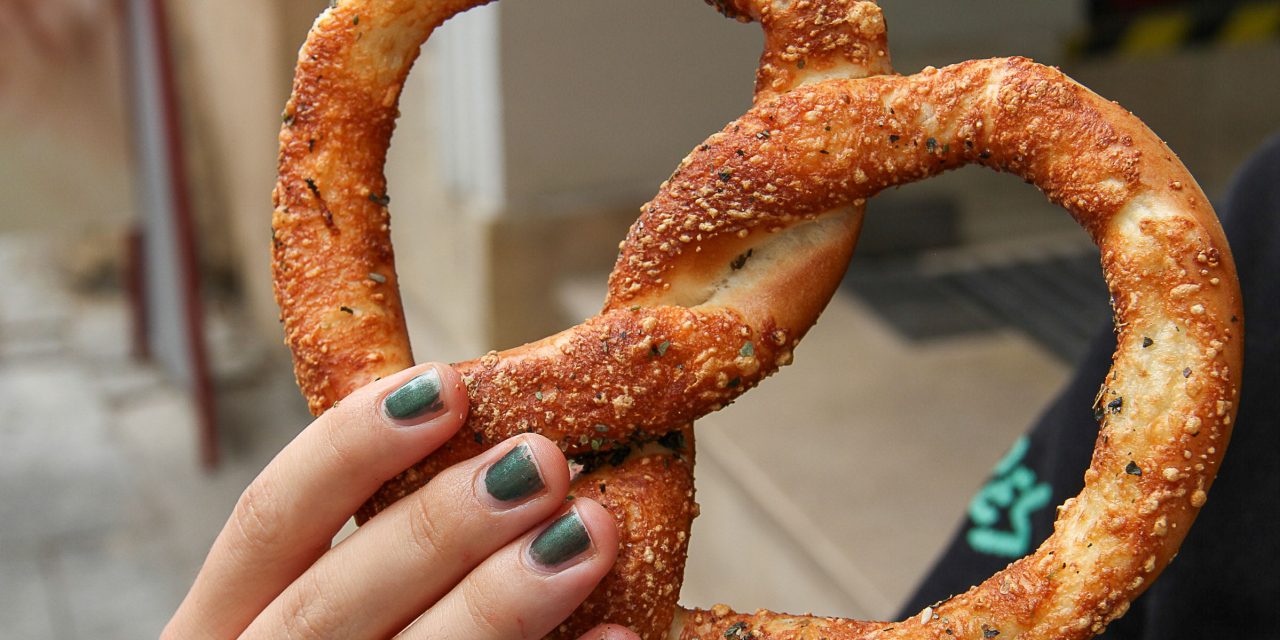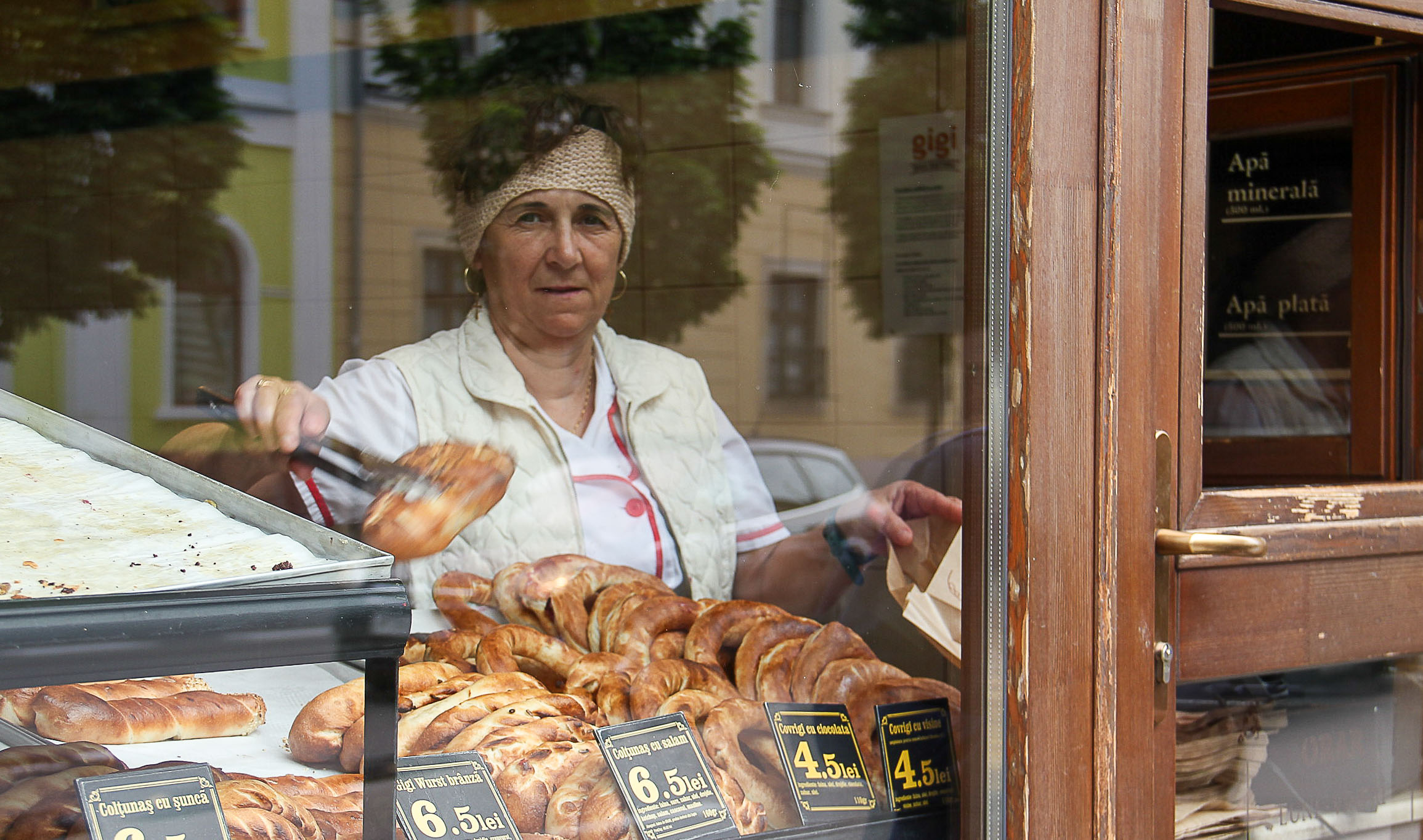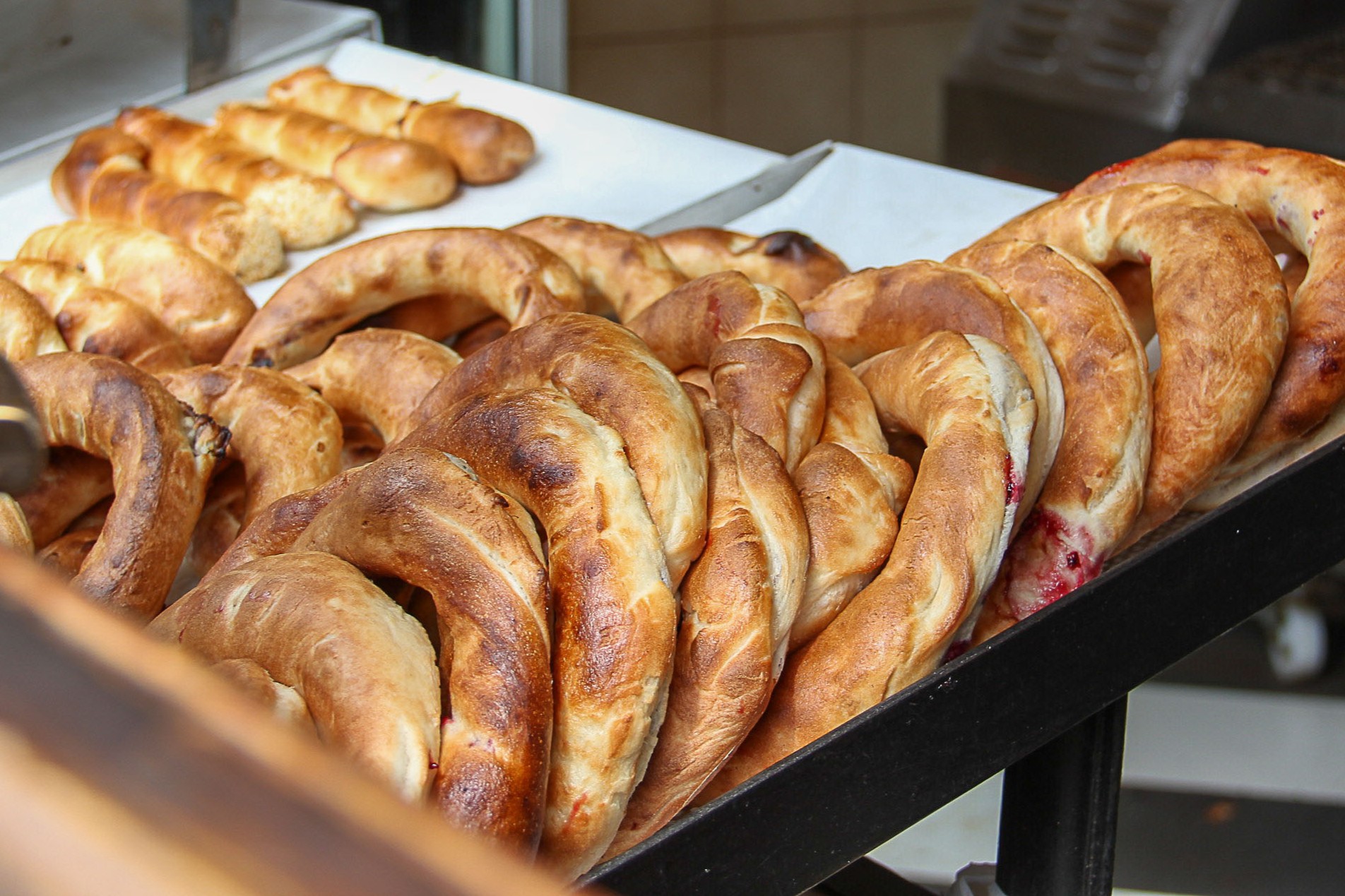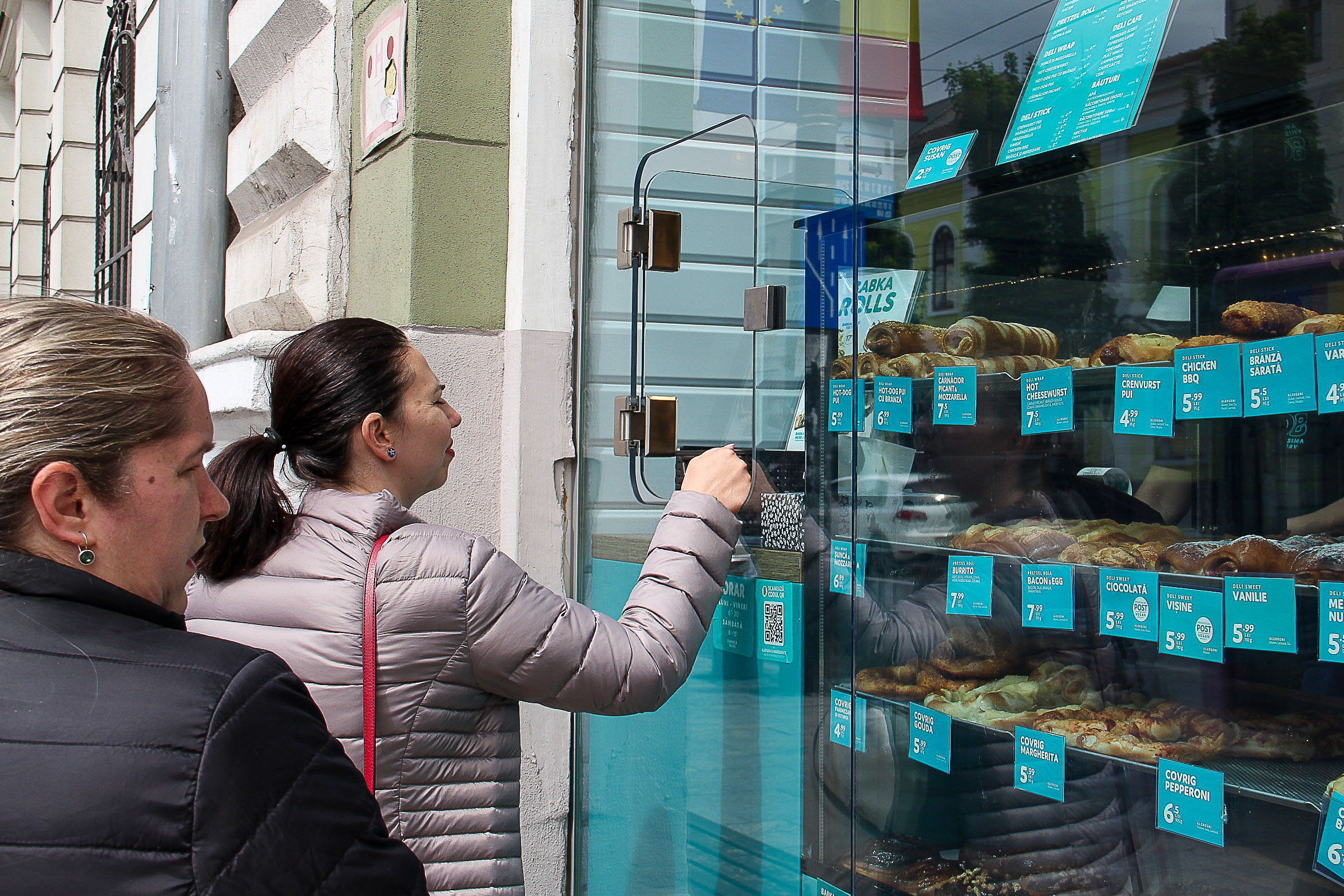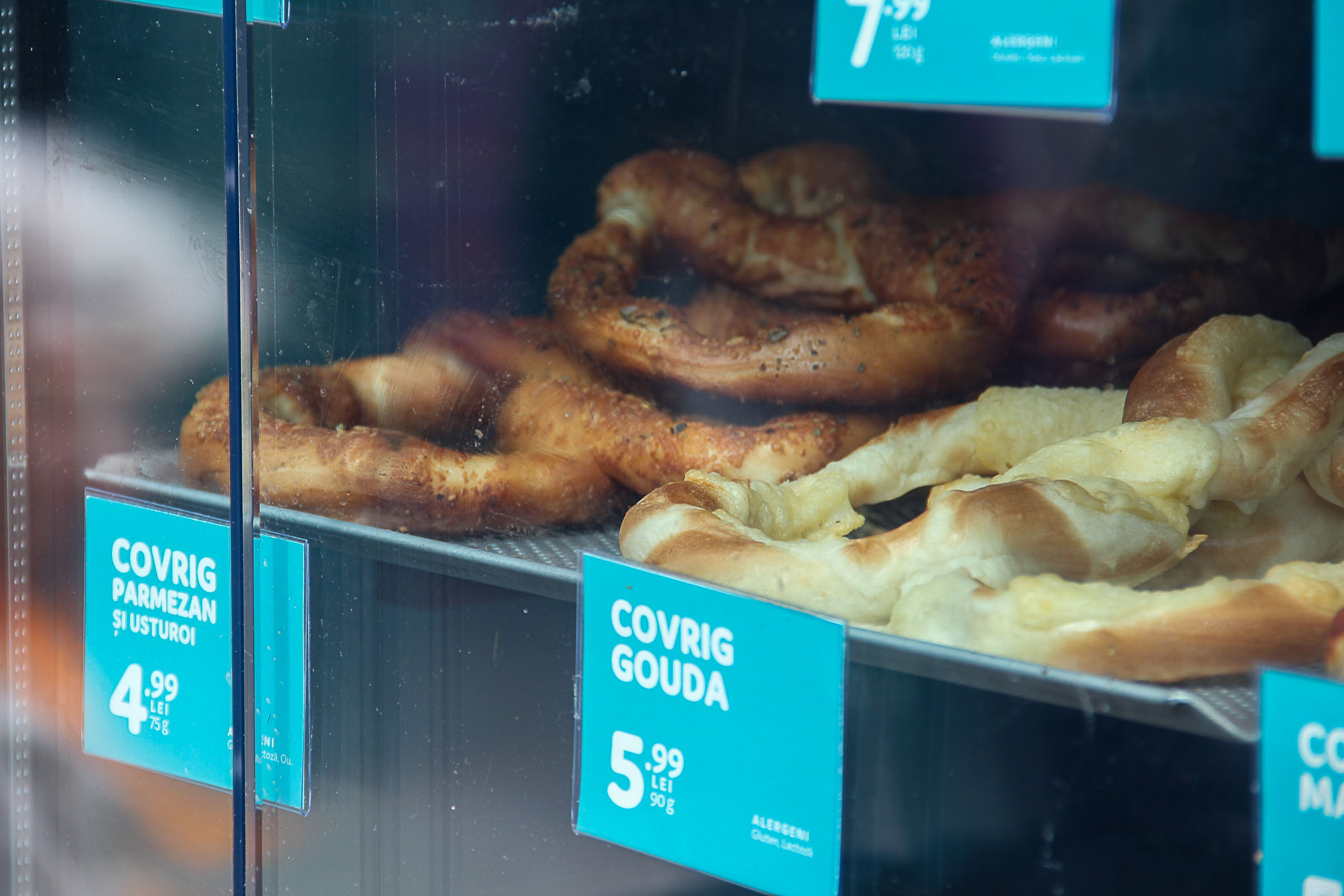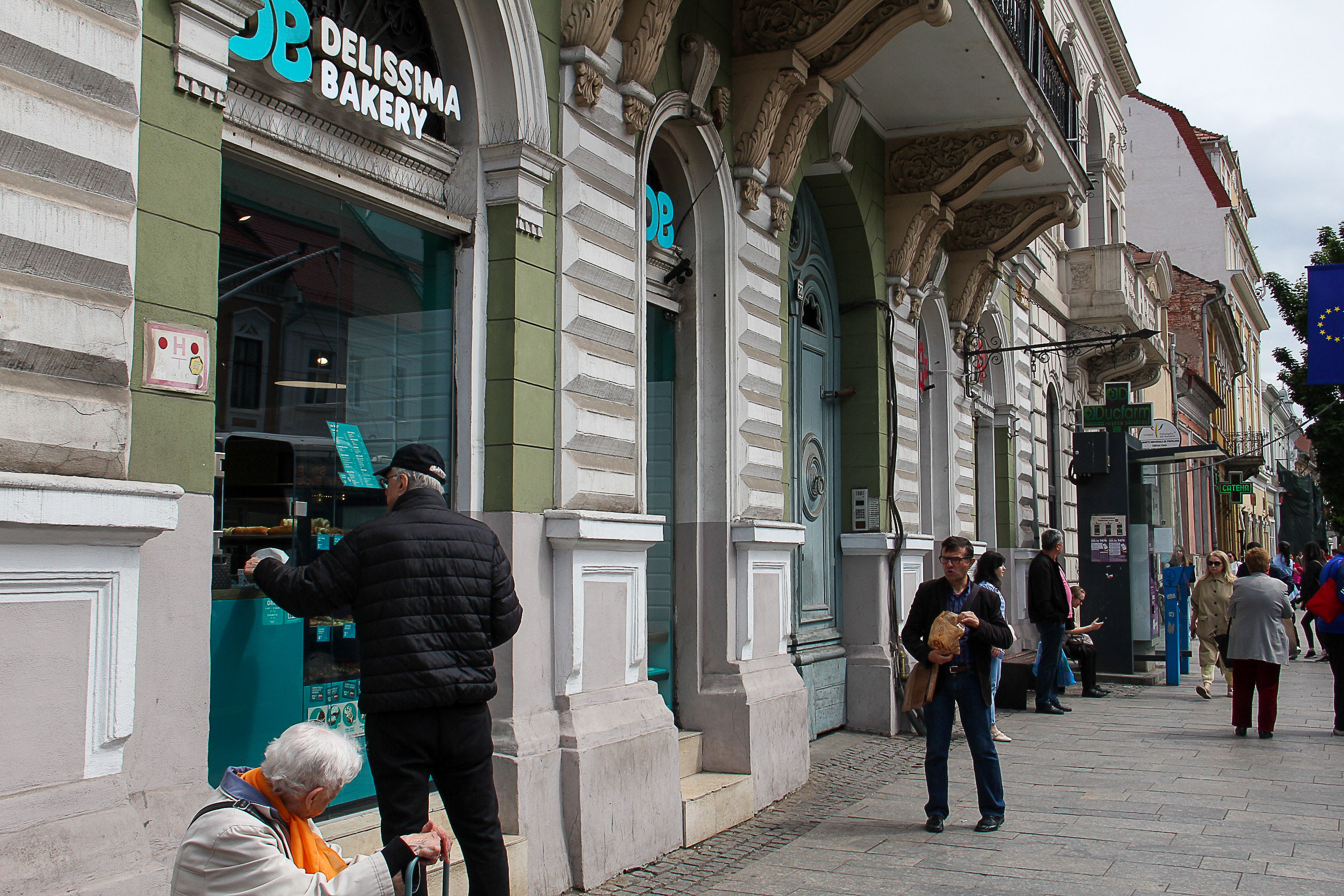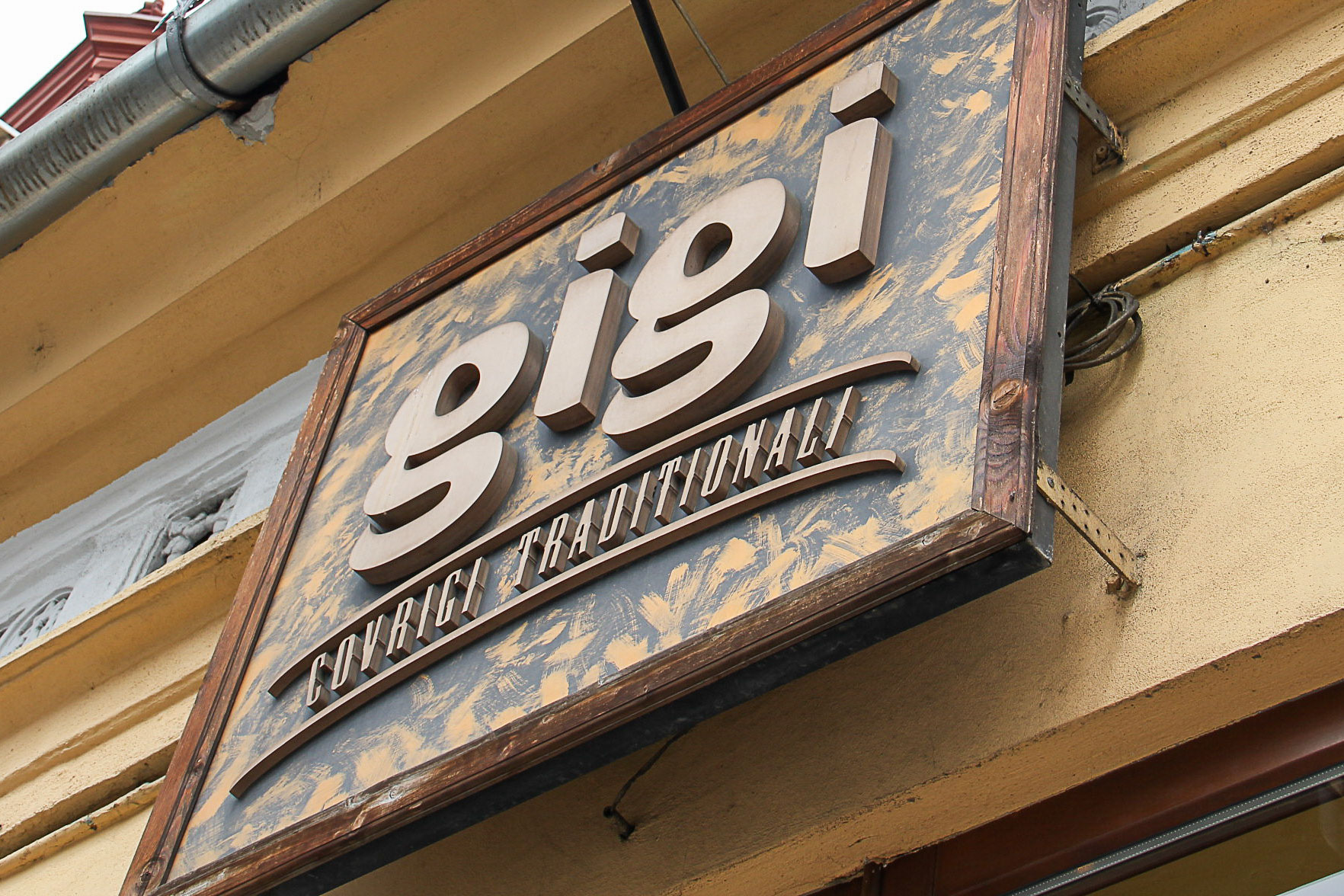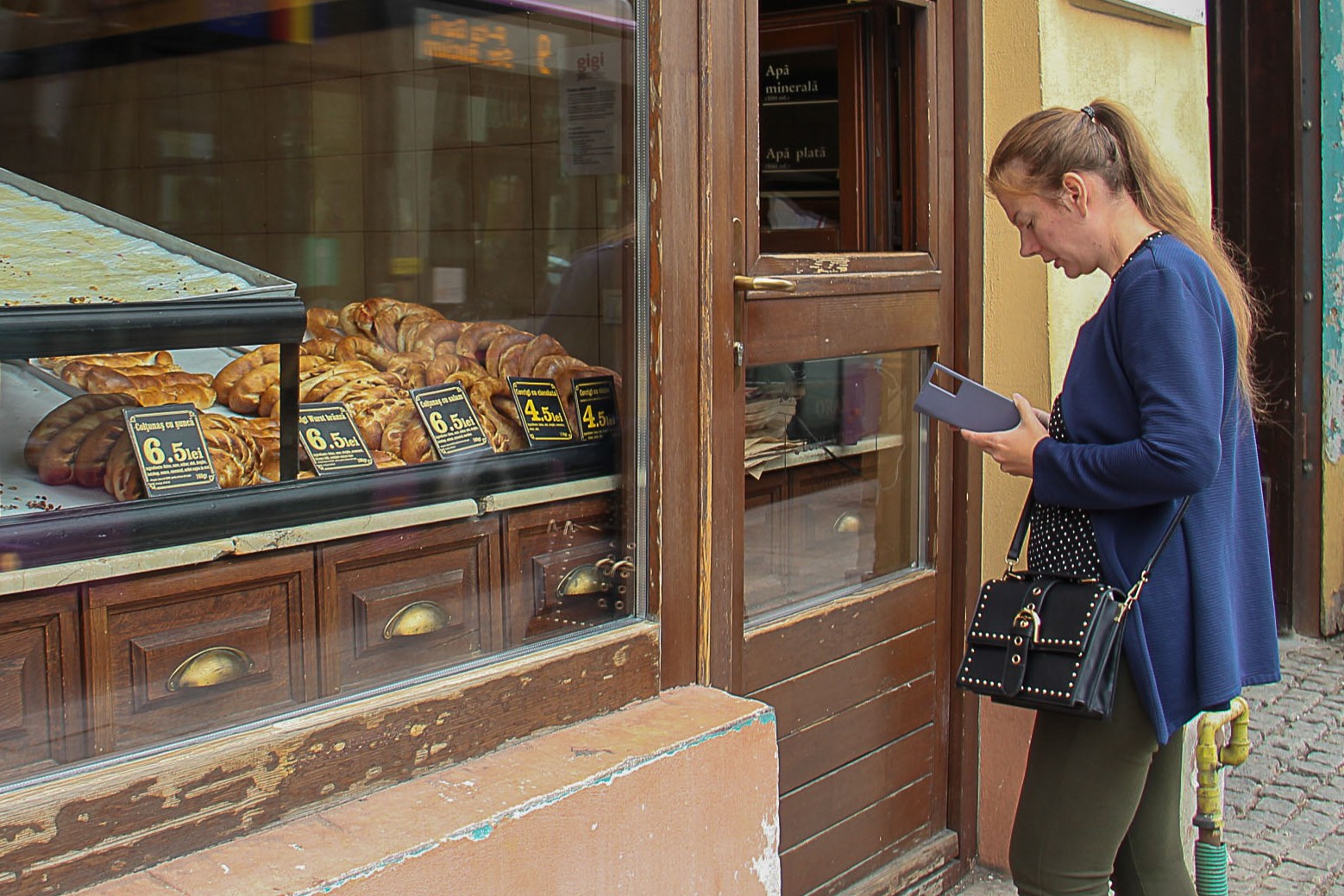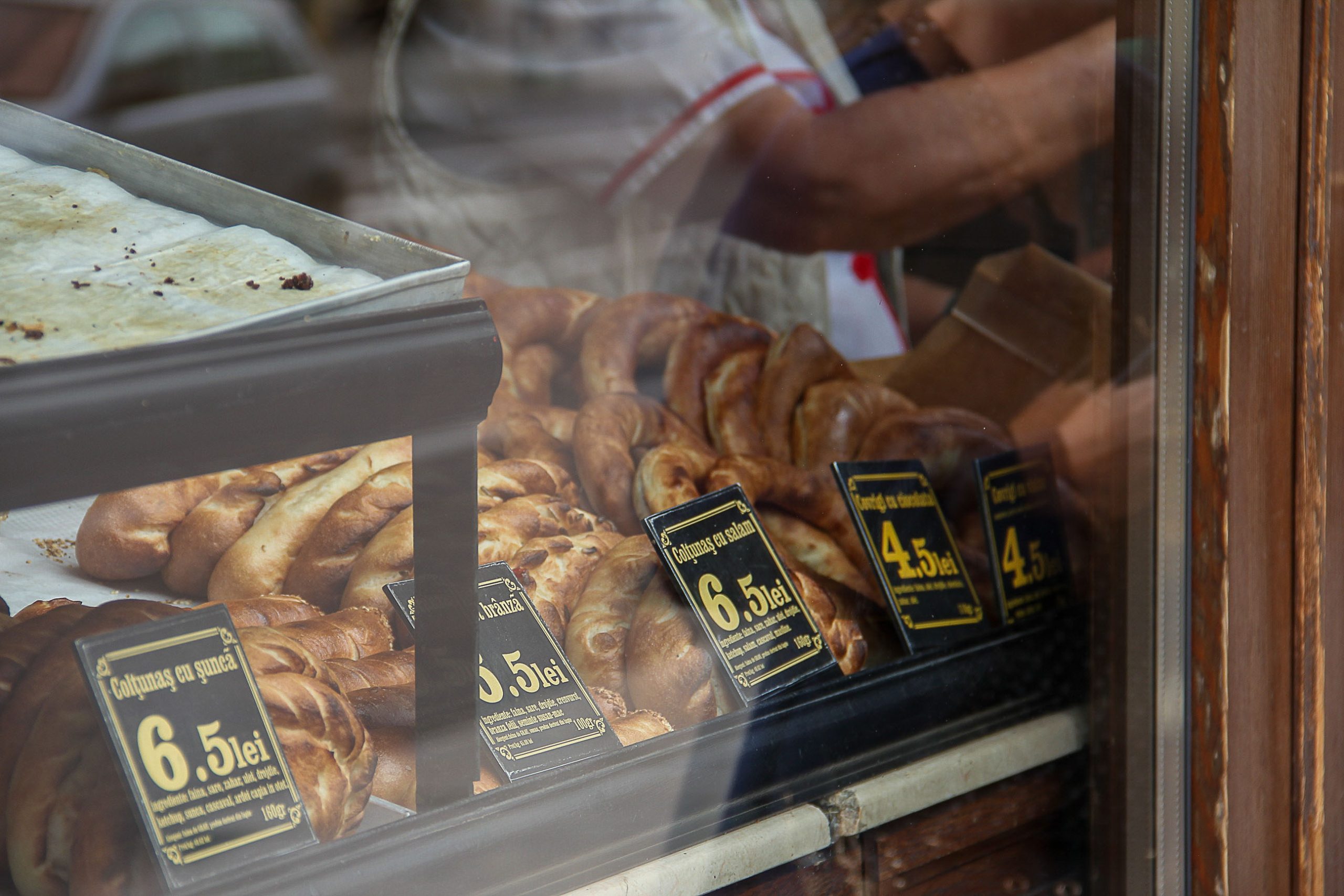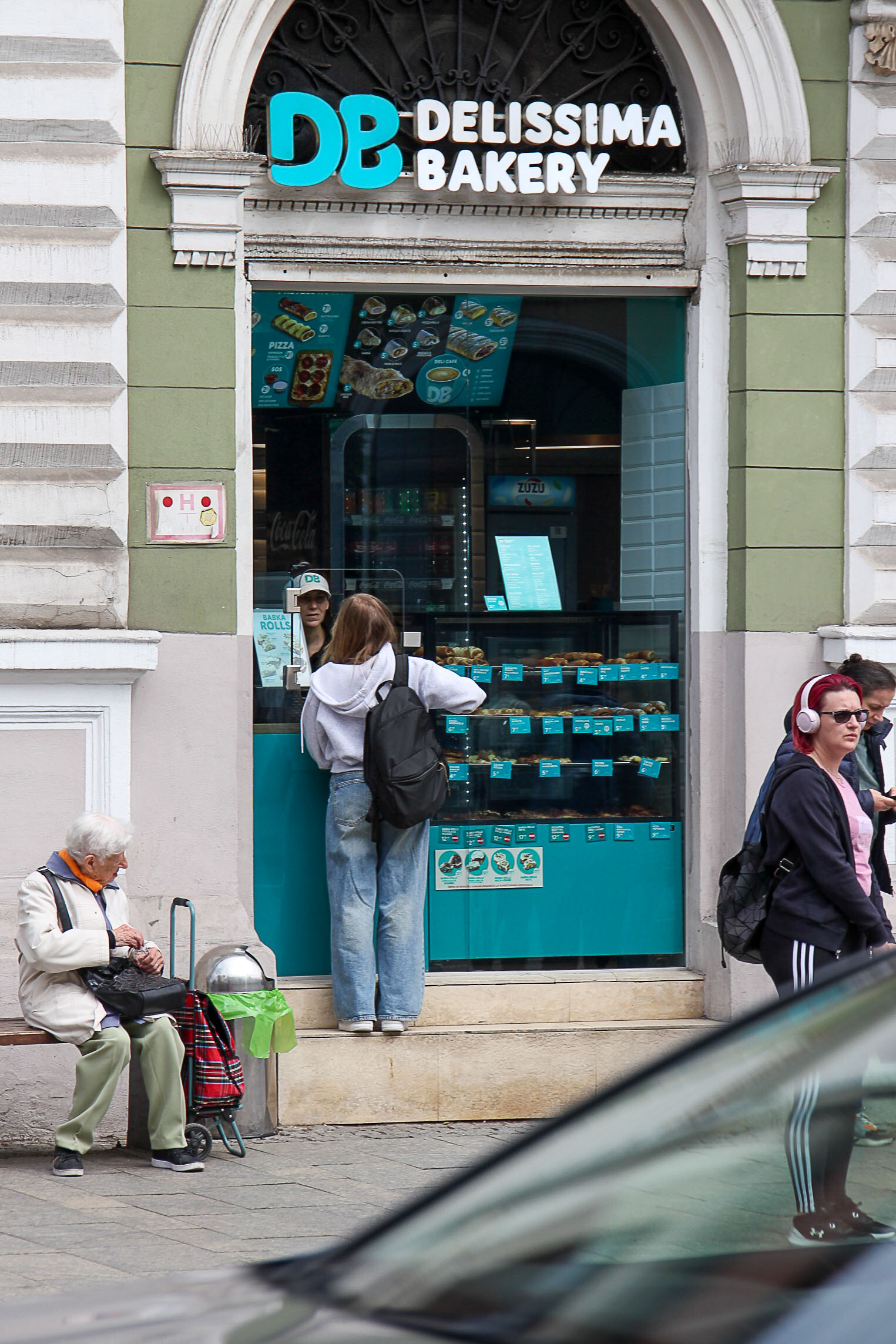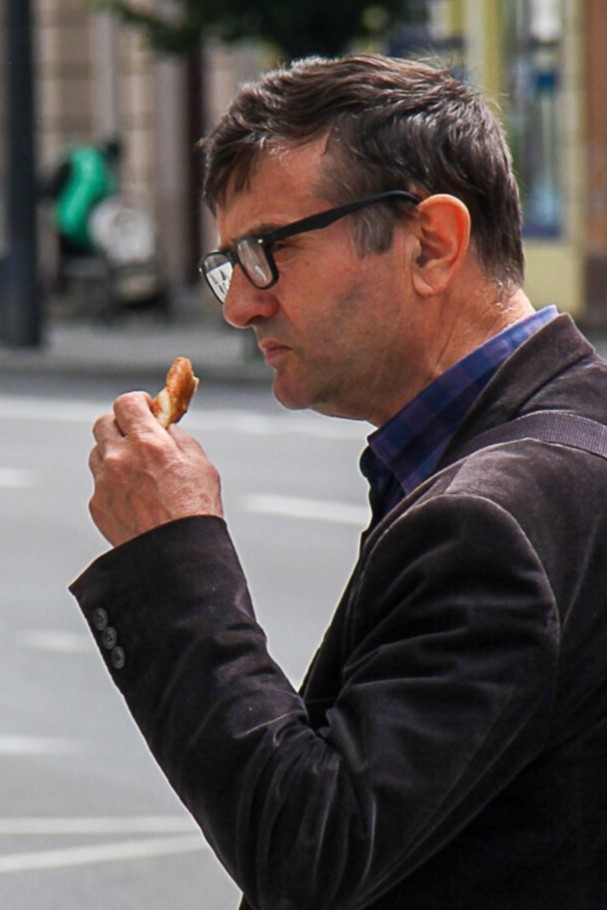Sold at bakeries, kiosks and street stalls, covrigi are a familiar part of daily life in Cluj-Napoca. Their simplicity and availability have made them a consistent presence across generations.
A covrig is a twisted bread ring, similar in shape to a pretzel, with a firm crust and a soft inside. Often topped with sesame, poppy seeds, or coarse salt, though variations with cheese or chocolate fillings have also gained popularity. They are widely available and consumed throughout Romania
Covrigi are believed to have been introduced by German settlers in the 12th century. The term itself derives from the German word kranz, meaning “wreath” or “ring.” Their role as a street food expanded significantly in the 20th century, especially under the communist regime, when covrigi were mass-produced in state-run bakeries and sold at low prices. Today, they are produced by both industrial bakeries and smaller, artisanal operations.
In Cluj-Napoca, covrigi are commonly bought as breakfast or a midday snack. They are sold from early morning onwards, with many bakeries producing fresh batches throughout the day. Their low cost and portability make them a convenient option for a wide range of consumers, from schoolchildren to office workers. “I buy them every morning before going to my university”, says a student while waiting in line at Delissima Bakery, “especially when I’m running late.”
The bakery ‘GIGI covrigi traditional’ is a bakery that has been around since 2015. They have their shops all over Romania and take a more traditional approach to their look and the baked goods they sell.
Another bakery 50 meters away from Gigi’s on the same street is Delissima Bakery, a Romanian staple that began in 2010, from a small work point in Cluj-Napoca. Today, they have 25 locations in the country and have their own production factory. Their recipes start from known tasted, but they reinterpret them in a modern style.
Despite changes in Romania’s food culture, including a growing market for premium and health-focused bakery products, covrigi remain popular. Their ongoing presence reflects both tradition and practicality in an evolving urban environment.
